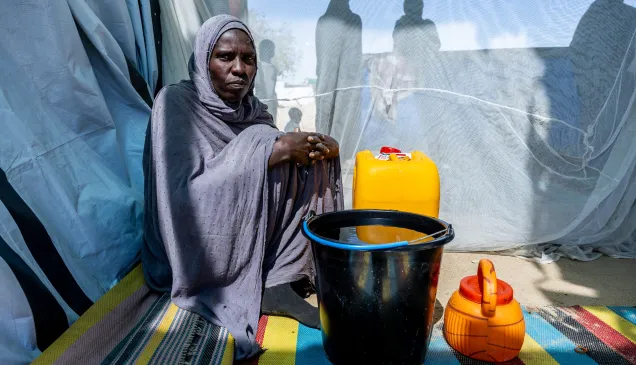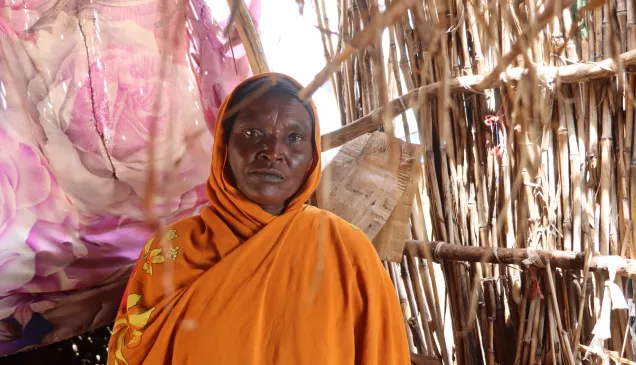A healthcare worker with the Sudanese Red Crescent Society in Hamyadet, a small town near the border, treats a woman who fled the fighting in Tigray. Many of the people seen by the Sudanese Red Crescent medical workers suffer from diseases like malaria or have been injured in fighting.
Photos and stories from Ethiopian refugees who fled Tigray for Sudan
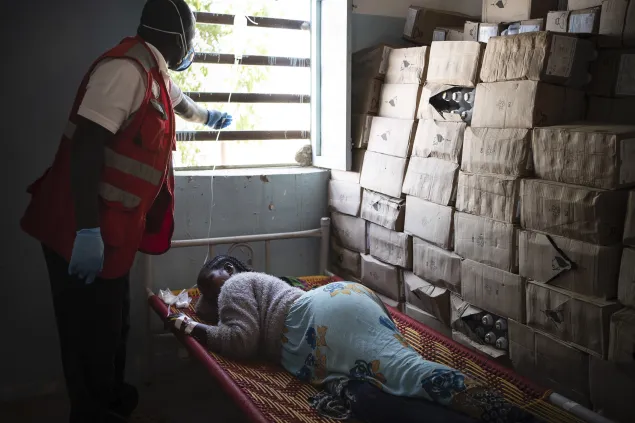
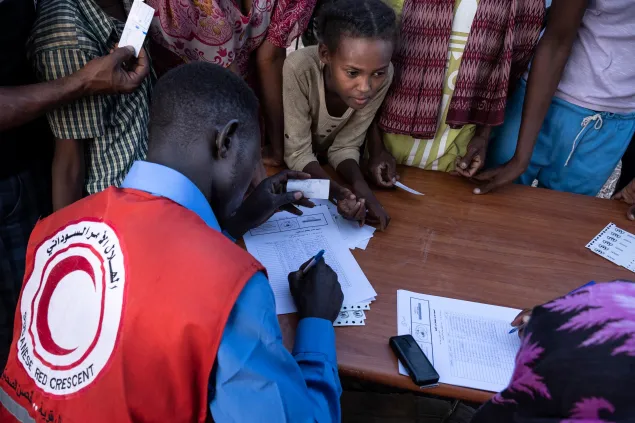
A Sudanese Red Crescent worker registers refugees who have just crossed the border. Many of them lost contact with their family members when they fled and are very worried about their fate.
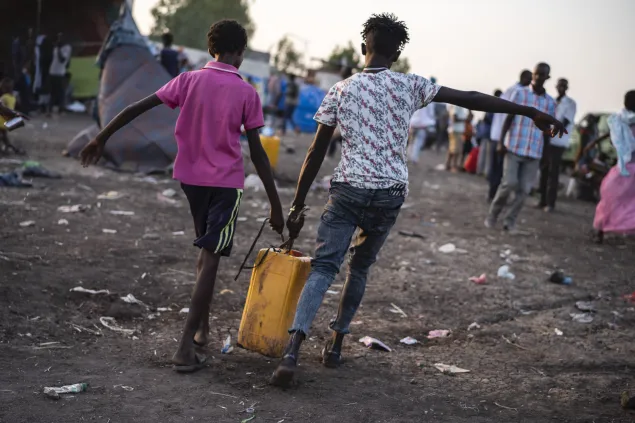
Young men gather at a water distribution point in Hamdayet, a small town which sits on the river that divides Sudan from Ethiopia. Access to sanitation and water is one of the many challenges that refugees face every day.
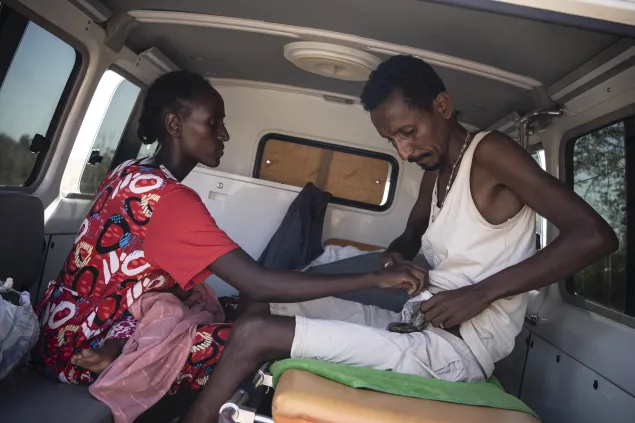
“It was harvest season. I was in my sorghum field when the men arrived. I saw the one who shot me,” says Naga Shokole, a 30-year-old farmer from the Ethiopian town of Humera. Naga’s wife, Yayish, found him wounded and assisted him. Together with their two-year-old daughter, Hirmila, they fled in a small cart with their donkeys across the border.
Upon arrival to Sudan, the Sudanese Red Crescent took care of Naga, and he was taken to Hashaba hospital.
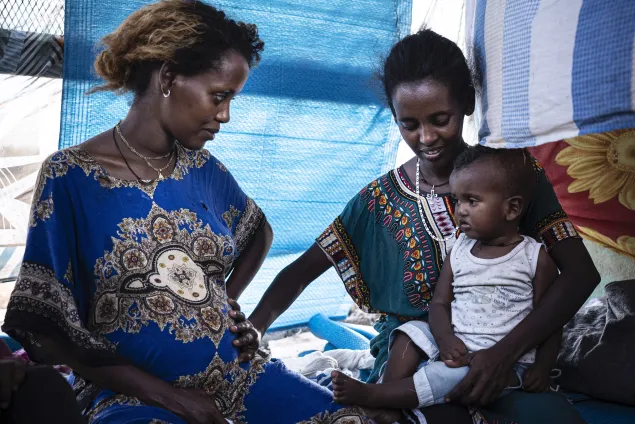
“I was so afraid for the baby that I have almost no memory of the road,” said Million, 24, who is nine months pregnant. “It's like a black hole. Today, I'm told that I have to stay here because I could deliver any moment. We’re going to see the doctor at the Sudanese Red Crescent healthcare center. My husband is in Mekelle, where we used to live.”
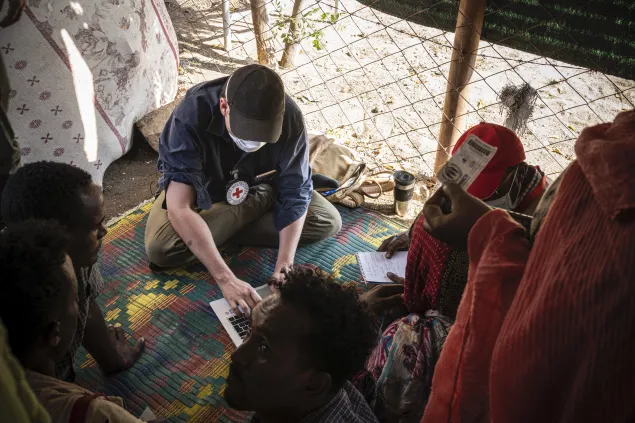
An ICRC delegate takes what are called “tracing requests” at Um Rakuba refugee camp. These requests are recorded in the Red Cross and Red Crescent system in an effort to help people find or reconnect with their family members.
Hundreds of people lost contact with their loved ones when they fled Ethiopia. As of 29 November, ICRC teams, together with the Sudanese Red Crescent, helped Ethiopians place about 1,000 successful phone calls to family members in parts of Ethiopia and abroad. With phone and internet lines still down in parts of Tigray, many have been completely cut-off from their relatives for weeks.
Hundreds of Ethiopian refugees continue to arrive in Sudan each day. They are exhausted and scared, and come with little more than just the clothes on their backs. Local Sudanese communities have shown incredible solidarity in sharing what resources they have with them as authorities and aid organisations work to scale up services like food, shelter, water and medical care.
Despite lacking so many basic necessities, many refugees have an even more urgent concern: reaching their loved ones to know if they are safe and well. Many were separated from their family members in the chaos of fleeing their homes, while others have been cut-off from contacting relatives because phone and internet lines remain down across part of Tigray State.
Together with the Sudanese Red Crescent, the ICRC has set up services in three different sites near the border to help people get in touch with their loved ones through phone calls and messages. The Sudanese Red Crescent is also providing medical care to refugees.


